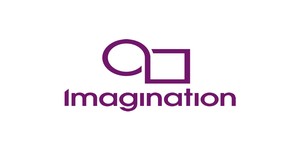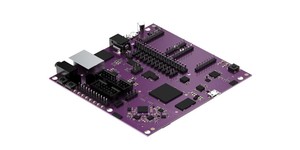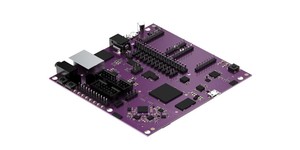Imagination Technologies' CEO steps down following losses
February 8, 2016 | 15:17
Companies: #apple #imagination-technologies #pure

The chief executive officer of graphics giant Imagination Technologies has stepped down, following the company's latest financial filings.
Imagination Technologies rose to success on the back of Sega's ill-fated Dreamcast console, having made enough from supplying the graphics hardware for the device to branch out into new areas. Sadly, the company's desktop graphics adapters were among the many victims of the 1990s accelerator wars that left only ATI - now AMD - and Nvidia standing, but the company found a niche where some of its patented technologies could really stretch their legs: mobile hardware. Today Imagination's PowerVR is one of the most popular graphics IPs for mobile and embedded processors, and the company has even been pushing gently at the desktop market once more with a range of ray-tracing accelerator boards for - at present - professional users.
With its latest financial results showing a £13 million loss on £177 million revenue, though, things have to change. Imagination has claimed that its difficulties stem from a lack of licensing deals in the latter half of the year coupled with lower-than-expected revenue from its existing licensees - which includes Apple, with the PowerVR chips making their way into the company's iPhone and iPad families.
Regardless of the cause, it's time for new blood at Imagination: chief executive Hossein Yassaie, who has been with the company since 1992 - when it was still known as Videologic - and oversaw its transition from hardware manufacturer to IP licenser, has stepped down from his role with immediate effect. Andrew Heath has been named interim chief, with the company beginning the search for a full-time replacement. 'We have built Imagination from very small beginnings into the leading provider of graphics processors as well as general purpose microprocessors and connectivity solutions,' boasted Yassaie of his former employer. 'It’s now time for someone else to lead this great company.'
With new blood at the top, Imagination has outlined a plan to stem losses and get back on track: it is undergoing an internal review of its operations with a view to trimming fat, including a look at its expenditure on research and development, which it hopes will reduce its ongoing operational costs by £15 million by the end of the next financial year. The company is also seeking a buyer for Pure, its consumer electronics offshoot best known for its eponymous range of digital radios.
The company is keen to reassure customers and fans that it has no intentions of slipping behind in the graphics performance race, though: it is reinvesting a further £2 million into its PowerVR division.
Imagination Technologies rose to success on the back of Sega's ill-fated Dreamcast console, having made enough from supplying the graphics hardware for the device to branch out into new areas. Sadly, the company's desktop graphics adapters were among the many victims of the 1990s accelerator wars that left only ATI - now AMD - and Nvidia standing, but the company found a niche where some of its patented technologies could really stretch their legs: mobile hardware. Today Imagination's PowerVR is one of the most popular graphics IPs for mobile and embedded processors, and the company has even been pushing gently at the desktop market once more with a range of ray-tracing accelerator boards for - at present - professional users.
With its latest financial results showing a £13 million loss on £177 million revenue, though, things have to change. Imagination has claimed that its difficulties stem from a lack of licensing deals in the latter half of the year coupled with lower-than-expected revenue from its existing licensees - which includes Apple, with the PowerVR chips making their way into the company's iPhone and iPad families.
Regardless of the cause, it's time for new blood at Imagination: chief executive Hossein Yassaie, who has been with the company since 1992 - when it was still known as Videologic - and oversaw its transition from hardware manufacturer to IP licenser, has stepped down from his role with immediate effect. Andrew Heath has been named interim chief, with the company beginning the search for a full-time replacement. 'We have built Imagination from very small beginnings into the leading provider of graphics processors as well as general purpose microprocessors and connectivity solutions,' boasted Yassaie of his former employer. 'It’s now time for someone else to lead this great company.'
With new blood at the top, Imagination has outlined a plan to stem losses and get back on track: it is undergoing an internal review of its operations with a view to trimming fat, including a look at its expenditure on research and development, which it hopes will reduce its ongoing operational costs by £15 million by the end of the next financial year. The company is also seeking a buyer for Pure, its consumer electronics offshoot best known for its eponymous range of digital radios.
The company is keen to reassure customers and fans that it has no intentions of slipping behind in the graphics performance race, though: it is reinvesting a further £2 million into its PowerVR division.

MSI MPG Velox 100R Chassis Review
October 14 2021 | 15:04








Want to comment? Please log in.